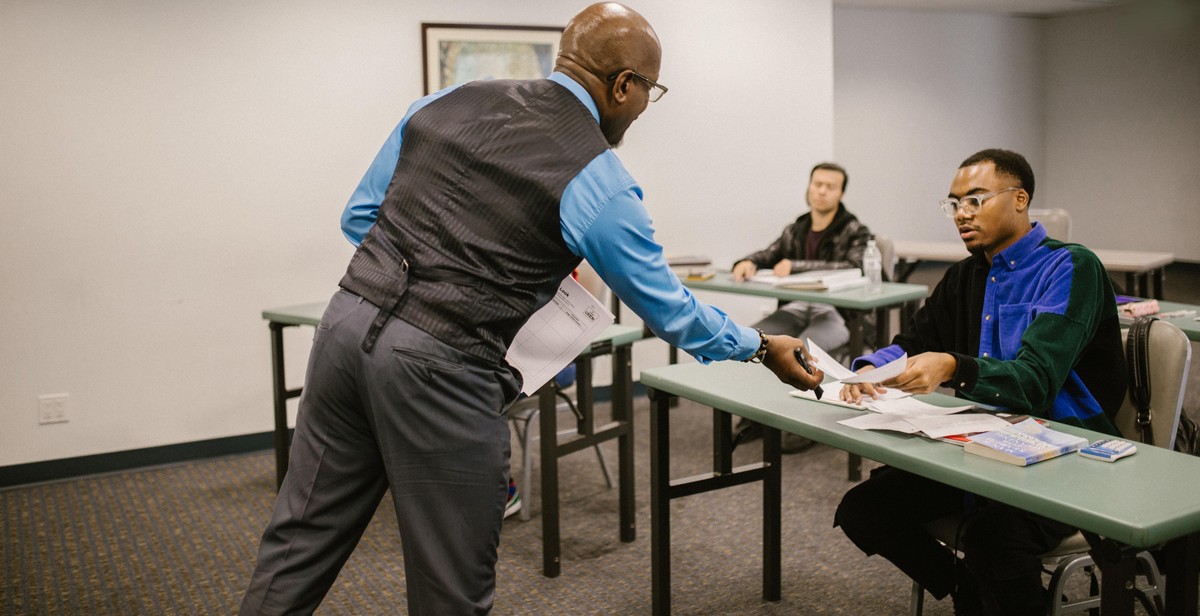How to Overcome Language Learning Plateaus: Strategies for Breaking Through Barriers
Learning a new language is a fascinating and rewarding experience, but it can also be frustrating and challenging at times. One of the most common obstacles in language learning is hitting a plateau, where progress seems to slow down or even stop altogether. This can happen at any level, from beginner to advanced, and can be caused by various factors, such as lack of motivation, ineffective study habits, or difficulty with certain aspects of the language.
If you have experienced a language learning plateau, don’t worry, it’s a normal part of the process. The good news is that there are strategies you can use to break through these barriers and continue making progress. In this article, I will share my personal experience and some effective techniques for overcoming language learning plateaus.
What is a Language Learning Plateau?
A language learning plateau is a period of time when a learner feels stuck and unable to make significant progress in their language skills. This can manifest in different ways, such as:
- Difficulty remembering new vocabulary
- Struggling to understand native speakers
- Feeling bored or unmotivated with language learning
- Not seeing any improvement in test scores or fluency
Why Do Plateaus Happen?
There are many reasons why language learning plateaus can occur. Some common causes include:
- Lack of practice or exposure to the language
- Ineffective study habits or techniques
- Difficulty with specific grammar or pronunciation rules
- Feeling overwhelmed or frustrated with the learning process
However, no matter the cause, there are ways to overcome language learning plateaus and continue making progress in your language journey.

Understanding Language Learning Plateaus
Language learning is an exciting journey that comes with its share of ups and downs. One of the most frustrating experiences that language learners face is hitting a plateau. A language learning plateau can be defined as a stage in the language learning process where a learner seems to make no progress despite consistent efforts.
What is a Language Learning Plateau?
A language learning plateau is a point in your language learning journey where you stop making progress. It’s like hitting a wall, where no matter how much effort you put in, you can’t seem to make any improvements in your language skills.
Language learning plateaus are common, and every language learner experiences them at some point. They can occur at any stage of the language learning process, from beginner to advanced levels. These plateaus can last for days, weeks, or even months, leaving learners feeling demotivated and frustrated.
Why do Language Learning Plateaus Occur?
There are several reasons why language learning plateaus occur. One of the most common reasons is a lack of motivation. When learners lose interest in learning a language, they tend to lose focus, which can lead to a lack of progress. Another reason is a lack of exposure to the language. If learners are not exposed to the language regularly, their language skills may stagnate.
Another reason for language learning plateaus is a lack of effective study strategies. Language learners need to use effective study strategies that suit their learning style. If learners are not using the right strategies, they may not make progress, and this can lead to a plateau.
Finally, language learning plateaus can occur due to the complexity of the language being learned. Some languages are more challenging to learn than others, and learners may find it challenging to progress beyond a certain point.
| Common Causes of Language Learning Plateaus |
|---|
| Lack of motivation |
| Lack of exposure to the language |
| Ineffective study strategies |
| Complexity of the language |
Understanding the causes of language learning plateaus is the first step in overcoming them. In the next section, we will explore strategies for breaking through language learning plateaus.

Breaking Through Language Learning Plateaus
Learning a new language can be a challenging and rewarding experience. However, it’s not uncommon to hit a plateau in your language learning journey. This can be frustrating and discouraging, but it’s important to remember that it’s a natural part of the learning process. Here are some strategies for breaking through language learning plateaus:
Set Realistic Goals
Setting realistic goals is essential for language learners. It’s important to break your language learning journey into smaller, achievable goals. This can help you stay motivated and see progress along the way. For example, instead of aiming to become fluent in a language, set a goal to learn 10 new words or phrases per day.
Try a New Learning Method
If you’re feeling stuck in your language learning journey, it may be time to try a new learning method. There are many different approaches to language learning, including textbooks, language apps, online courses, and language exchange programs. Experiment with different methods to find what works best for you.
Practice Consistently
Consistent practice is key to breaking through language learning plateaus. Even if you only have a few minutes a day to practice, make it a habit to practice consistently. This can help you build momentum and make progress in your language learning journey.
Immerse Yourself in the Language
Immersing yourself in the language is one of the best ways to break through language learning plateaus. This can include listening to music or podcasts in the target language, watching movies or TV shows with subtitles, or reading books in the target language. The more you immerse yourself in the language, the easier it will be to make progress in your language learning journey.
Find a Language Exchange Partner
Language exchange programs are a great way to practice speaking and listening in a new language. Find a language exchange partner who speaks the language you’re learning and practice together regularly. This can help you gain confidence and improve your language skills.
Take a Break
Finally, it’s important to take a break if you’re feeling stuck in your language learning journey. Sometimes, taking a step back and giving yourself time to recharge can be just what you need to break through a plateau. Take some time to focus on other hobbies or interests and come back to your language learning journey with renewed energy.
| Strategy | Description |
|---|---|
| Set Realistic Goals | Break your language learning journey into smaller, achievable goals. |
| Try a New Learning Method | Experiment with different approaches to language learning to find what works best for you. |
| Practice Consistently | Make a habit of practicing consistently, even if it’s just a few minutes a day. |
| Immerse Yourself in the Language | Listen to music or podcasts, watch movies or TV shows, or read books in the target language to immerse yourself in the language. |
| Find a Language Exchange Partner | Practice speaking and listening with a language exchange partner who speaks the language you’re learning. |
| Take a Break | Give yourself time to recharge and come back to your language learning journey with renewed energy. |

Overcoming Mental Barriers in Language Learning
Language learning can be a challenging journey, and it’s common to hit plateaus along the way. These plateaus can be caused by a variety of factors, including mental barriers that can hold you back from making progress. Here are three common mental barriers and strategies for overcoming them:
Fear of Making Mistakes
One of the biggest mental barriers in language learning is the fear of making mistakes. Many learners are afraid to speak or write in their target language because they don’t want to sound foolish or be corrected. However, making mistakes is a natural and necessary part of the learning process. The more you practice, the more mistakes you’ll make, and the more you’ll learn from them.
To overcome this fear, try to shift your mindset. Instead of seeing mistakes as failures, view them as opportunities to learn and improve. Embrace the process of making mistakes and seek out feedback from others. Practice speaking or writing with a language partner or tutor who can provide constructive criticism and help you identify areas for improvement.
Lack of Confidence
Another common mental barrier is a lack of confidence. Many language learners feel insecure about their abilities and doubt whether they’ll ever be able to speak or write fluently. However, confidence is key to making progress in language learning. Without confidence, it’s difficult to take risks and push yourself out of your comfort zone.
To build confidence, start by setting small goals for yourself. Focus on achievable tasks, such as learning a set of vocabulary words or practicing a particular grammar point. As you accomplish these goals, your confidence will grow. Additionally, try to surround yourself with supportive people who will encourage and motivate you. Join language learning communities online or in person, where you can connect with other learners and share your experiences.
Comparison to Others
Finally, many language learners struggle with comparing themselves to others. It’s easy to feel discouraged when you see other learners who seem to be making progress faster or speaking more fluently. However, everyone learns at their own pace, and comparing yourself to others will only hold you back.
To overcome this mental barrier, focus on your own progress and journey. Set your own goals and measure your progress against yourself, not others. Remember that language learning is a personal journey, and everyone’s path is unique. Celebrate your successes and don’t be too hard on yourself when you encounter challenges.
| Tip: | Keep a language learning journal where you can track your progress, set goals, and reflect on your experiences. This can help you stay motivated and focused on your own journey. |

Conclusion
Learning a new language can be a challenging but rewarding experience. However, it’s not uncommon to hit a plateau in your language learning journey, where progress seems to slow down or even come to a halt. The good news is that there are strategies you can use to break through these barriers and continue to make progress towards fluency.
Stay motivated
One of the most important things you can do to overcome language learning plateaus is to stay motivated. Set achievable goals, celebrate your successes, and remind yourself why you started learning the language in the first place.
Try different methods
If you feel like you’re not making progress with your current language learning method, try something new. Experiment with different resources, such as textbooks, audio courses, or language exchange programs.
Get out of your comfort zone
Another way to overcome language learning plateaus is to challenge yourself. Try listening to native speakers, speaking with a language partner, or watching movies without subtitles. These activities can help you improve your comprehension and fluency.
Be patient
Finally, remember that language learning is a marathon, not a sprint. It takes time and practice to reach fluency, so be patient with yourself and don’t give up.
| Strategy | Description |
|---|---|
| Stay motivated | Set achievable goals, celebrate your successes, and remind yourself why you started learning the language in the first place. |
| Try different methods | Experiment with different resources, such as textbooks, audio courses, or language exchange programs. |
| Get out of your comfort zone | Challenge yourself by listening to native speakers, speaking with a language partner, or watching movies without subtitles. |
| Be patient | Remember that language learning takes time and practice, so be patient with yourself and don’t give up. |
By following these strategies and staying committed to your language learning goals, you can break through language learning plateaus and achieve fluency in your target language.
